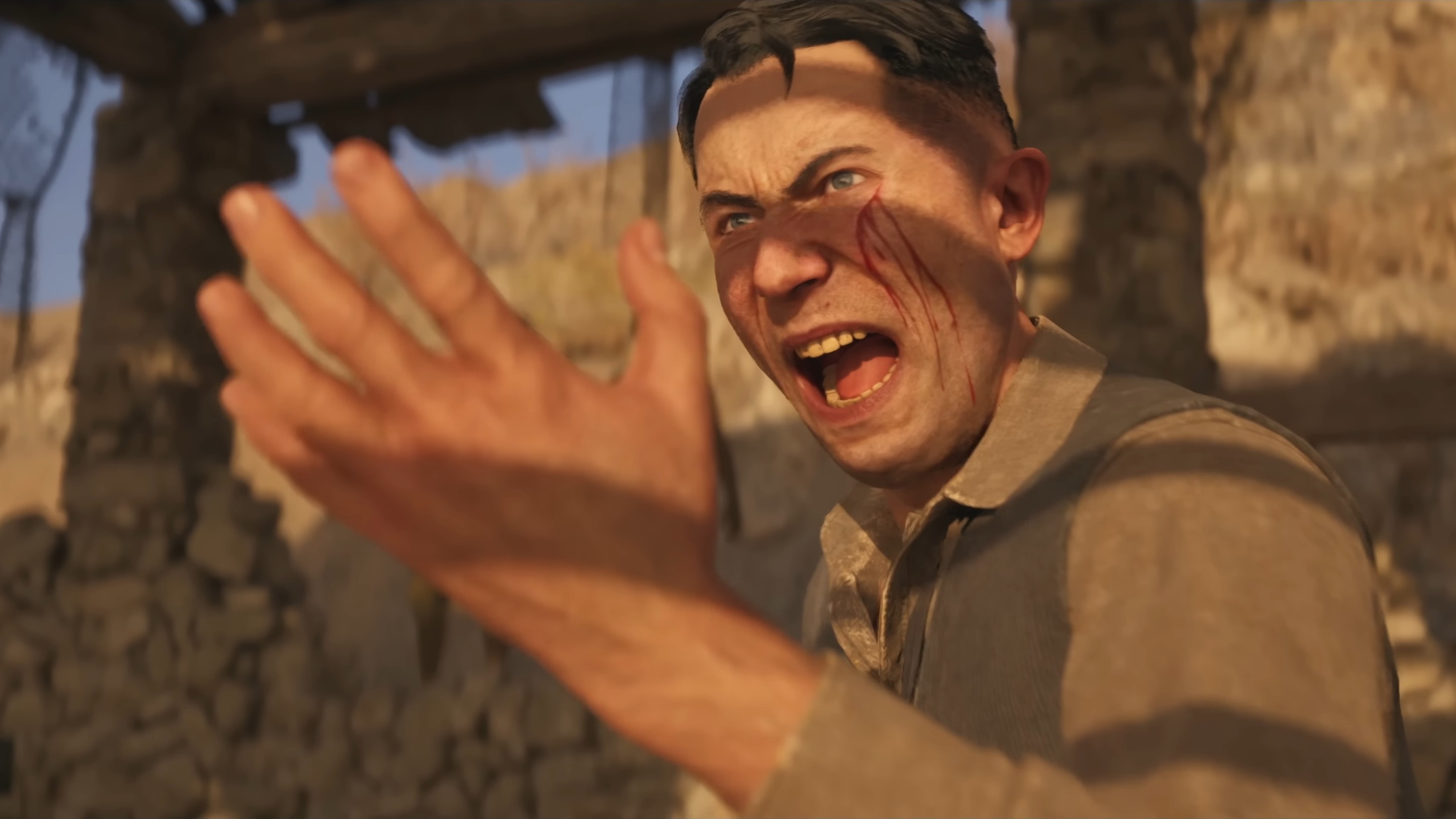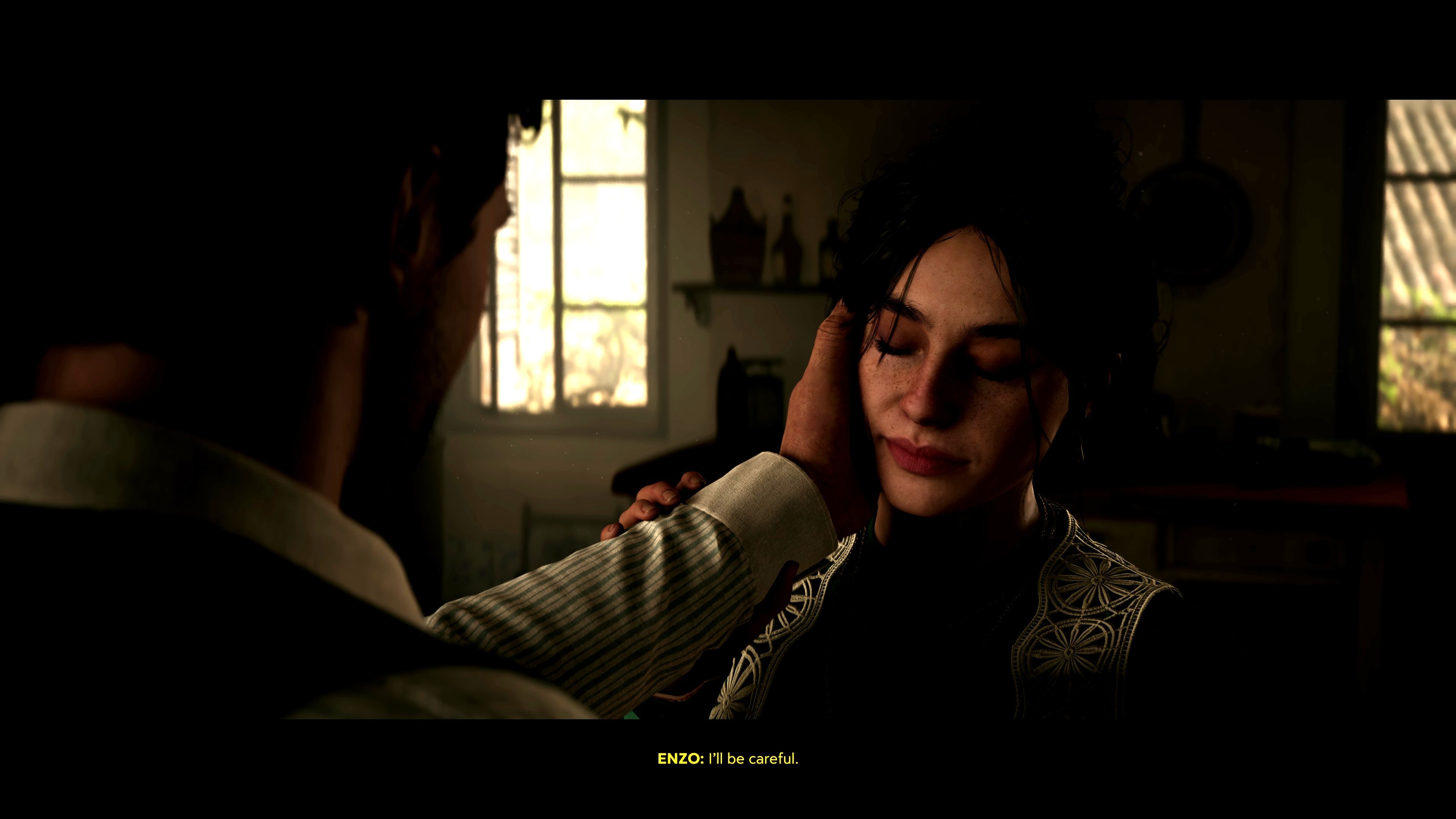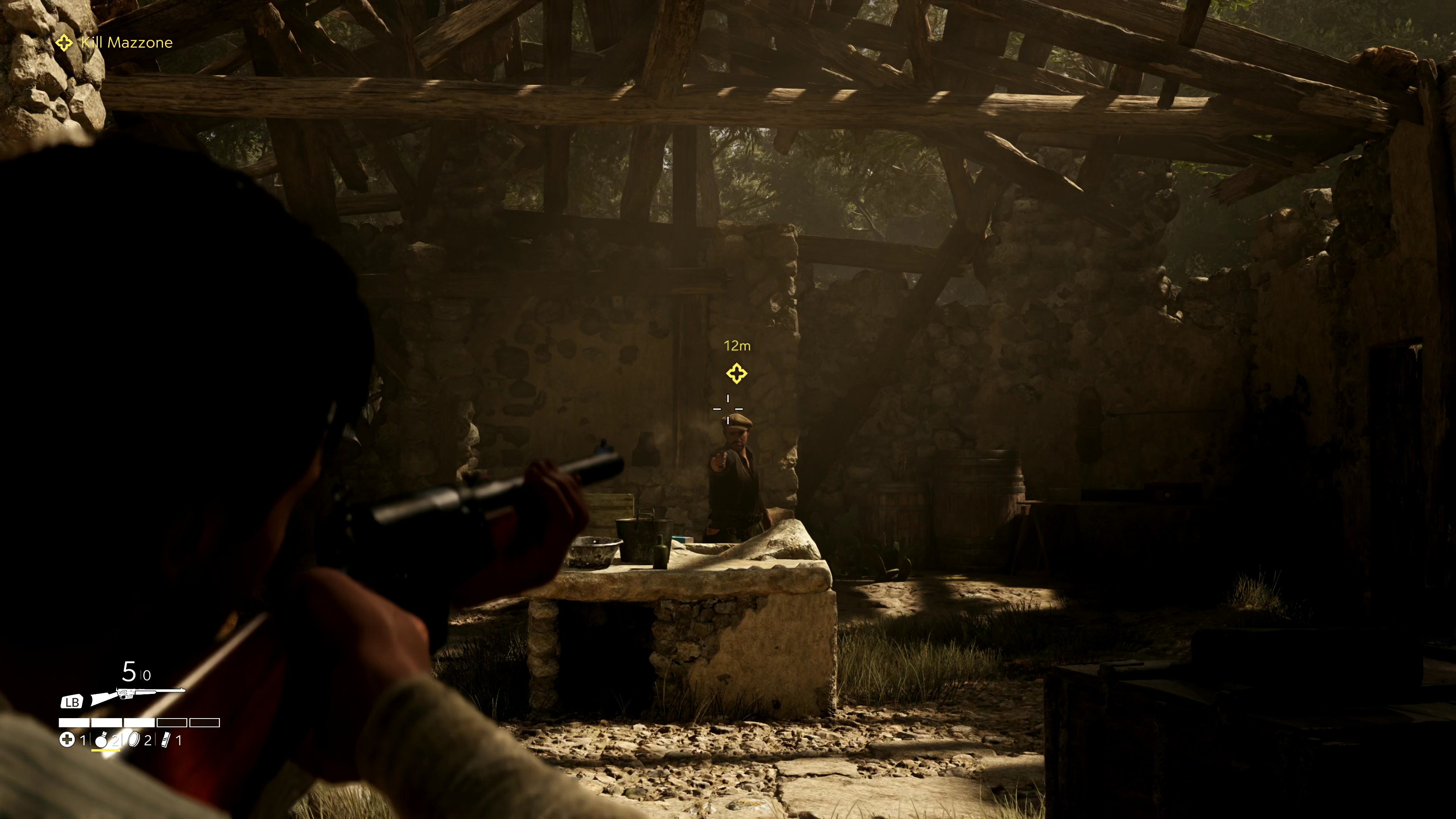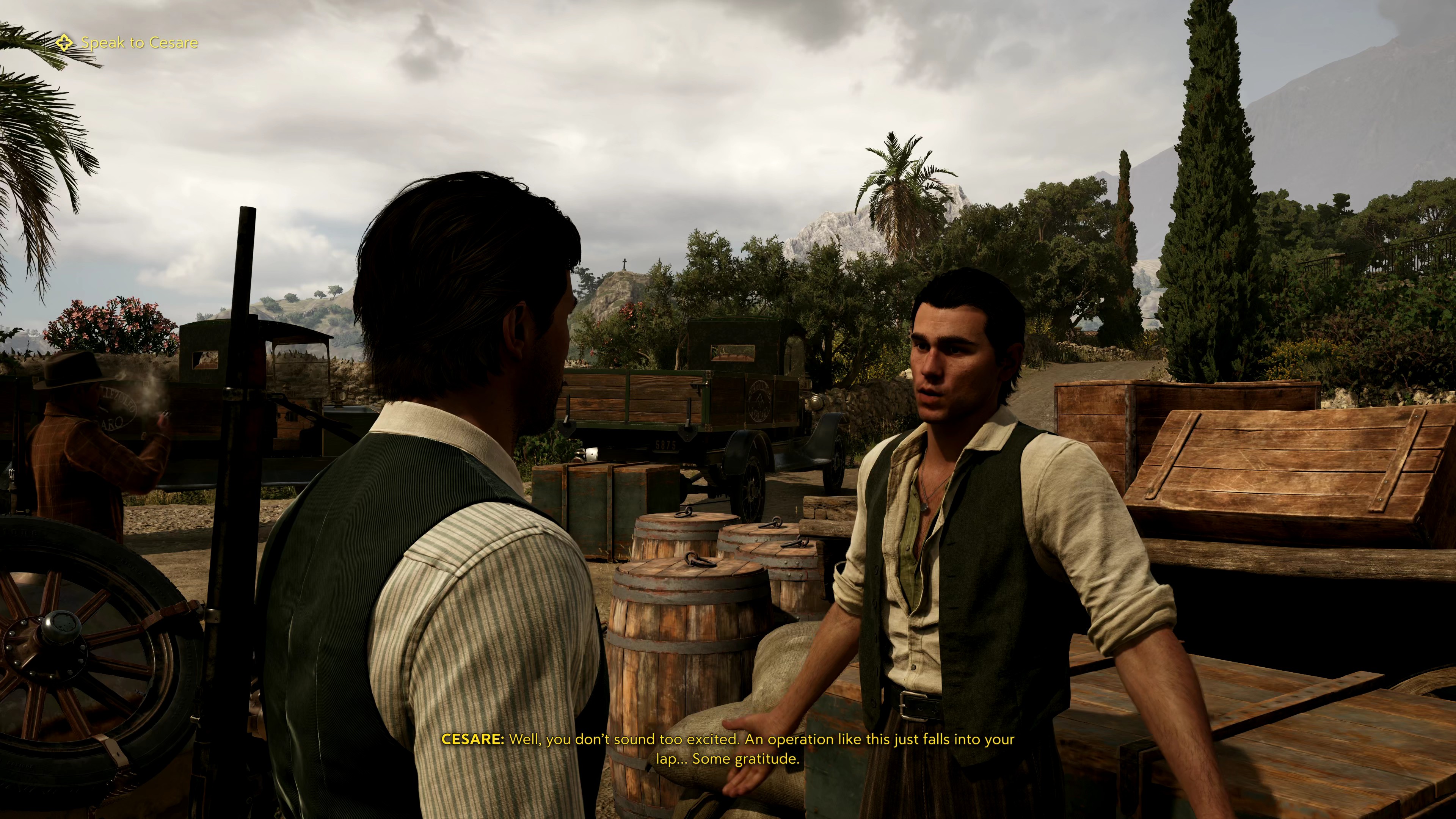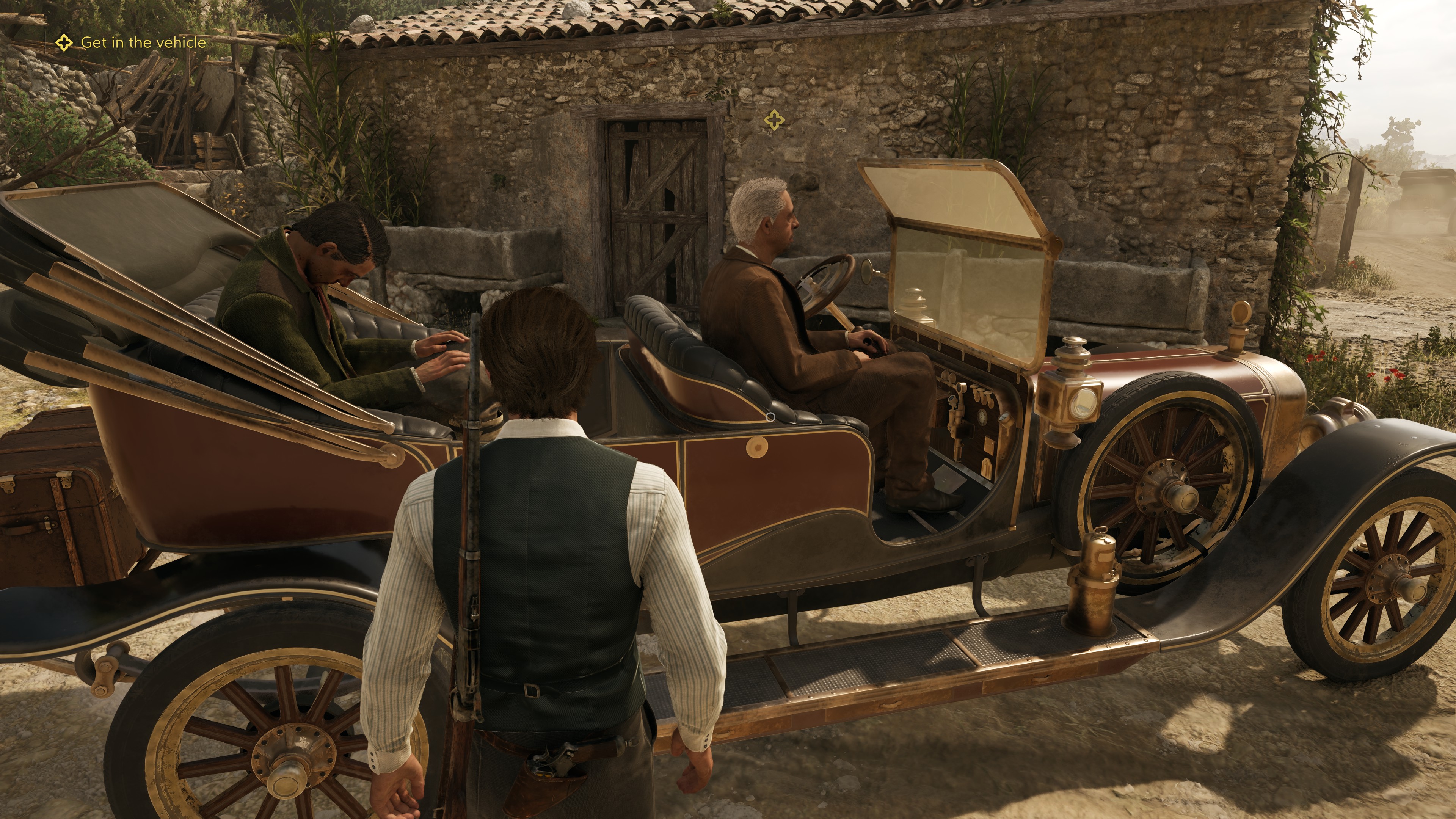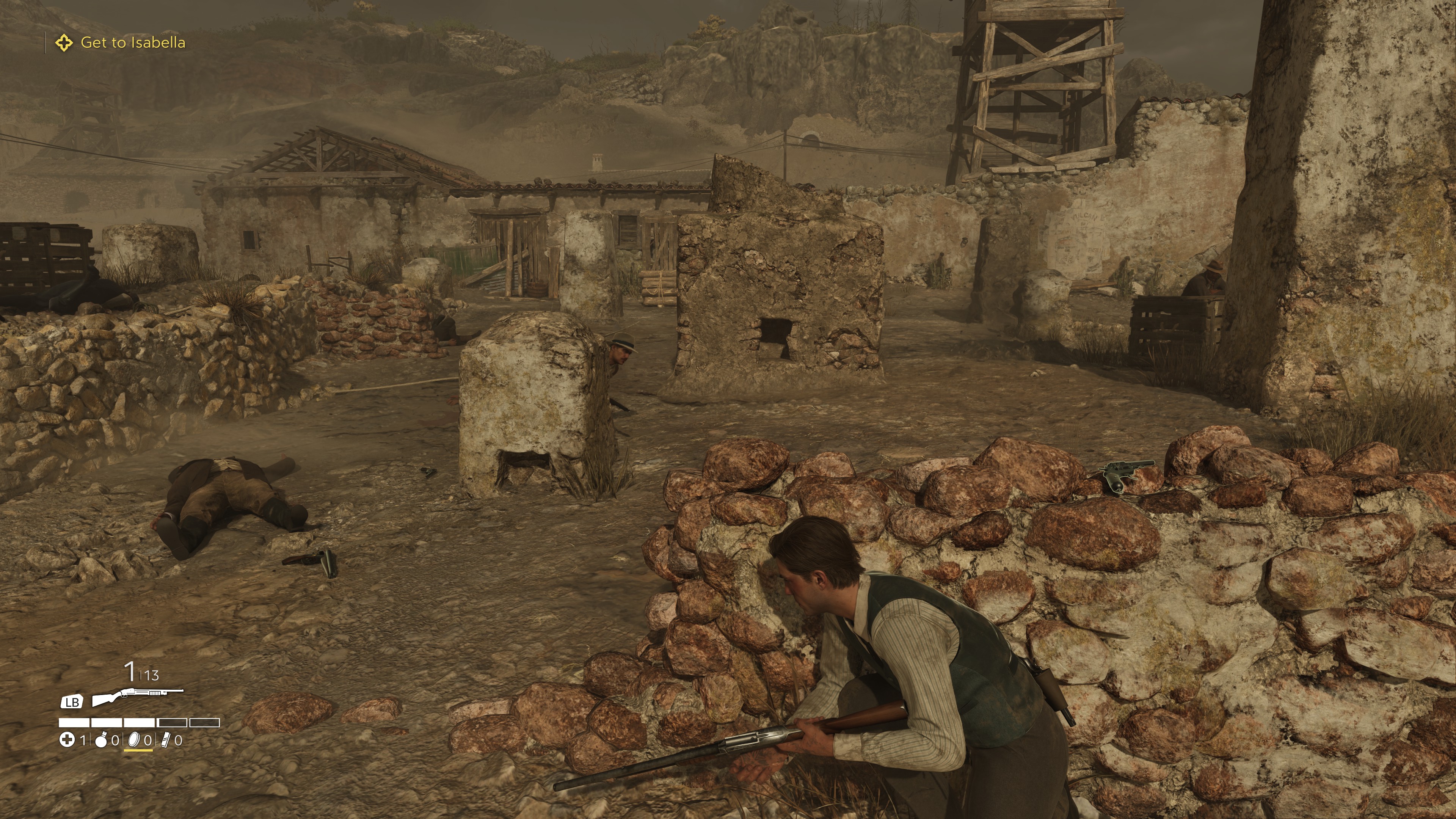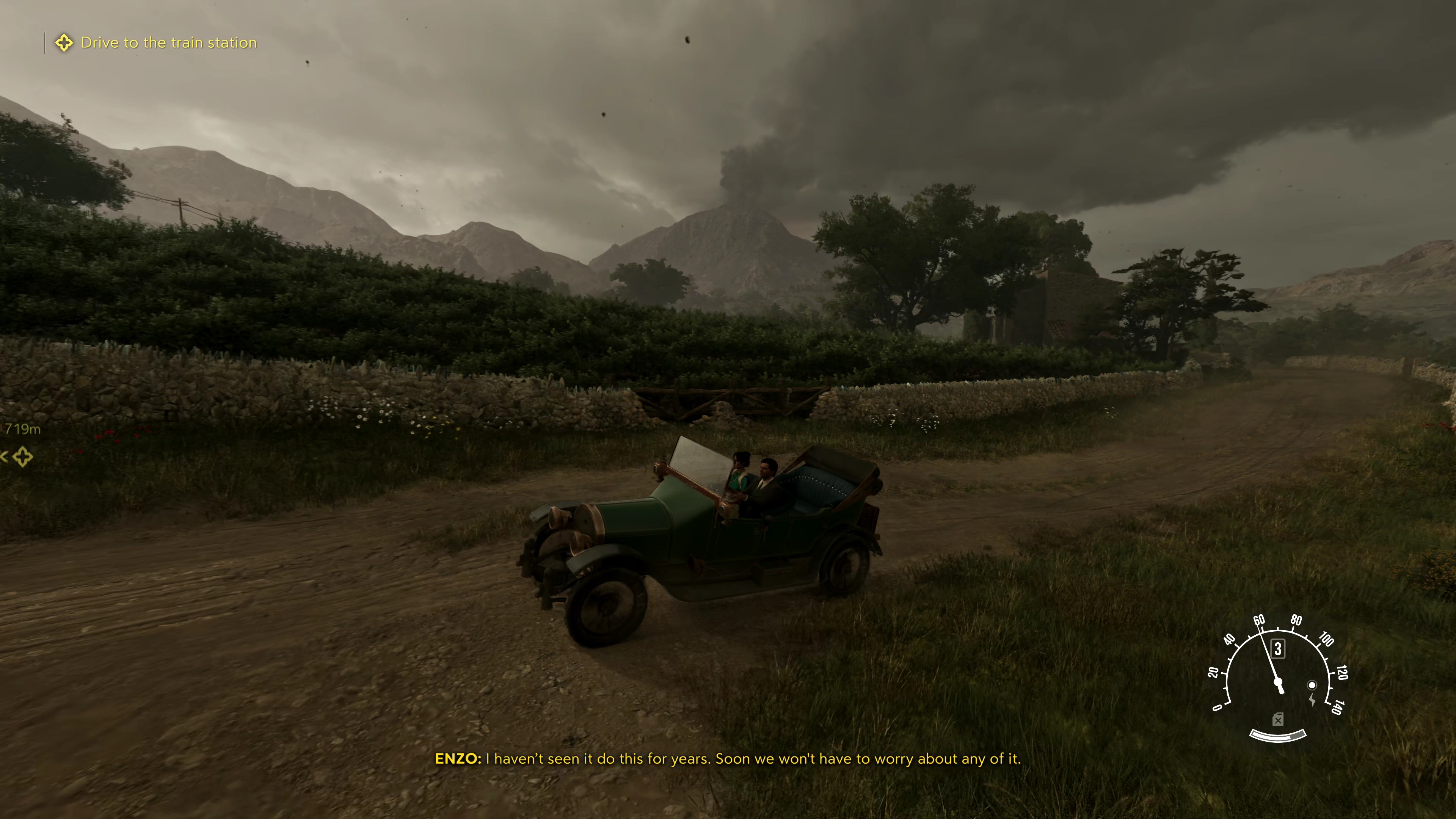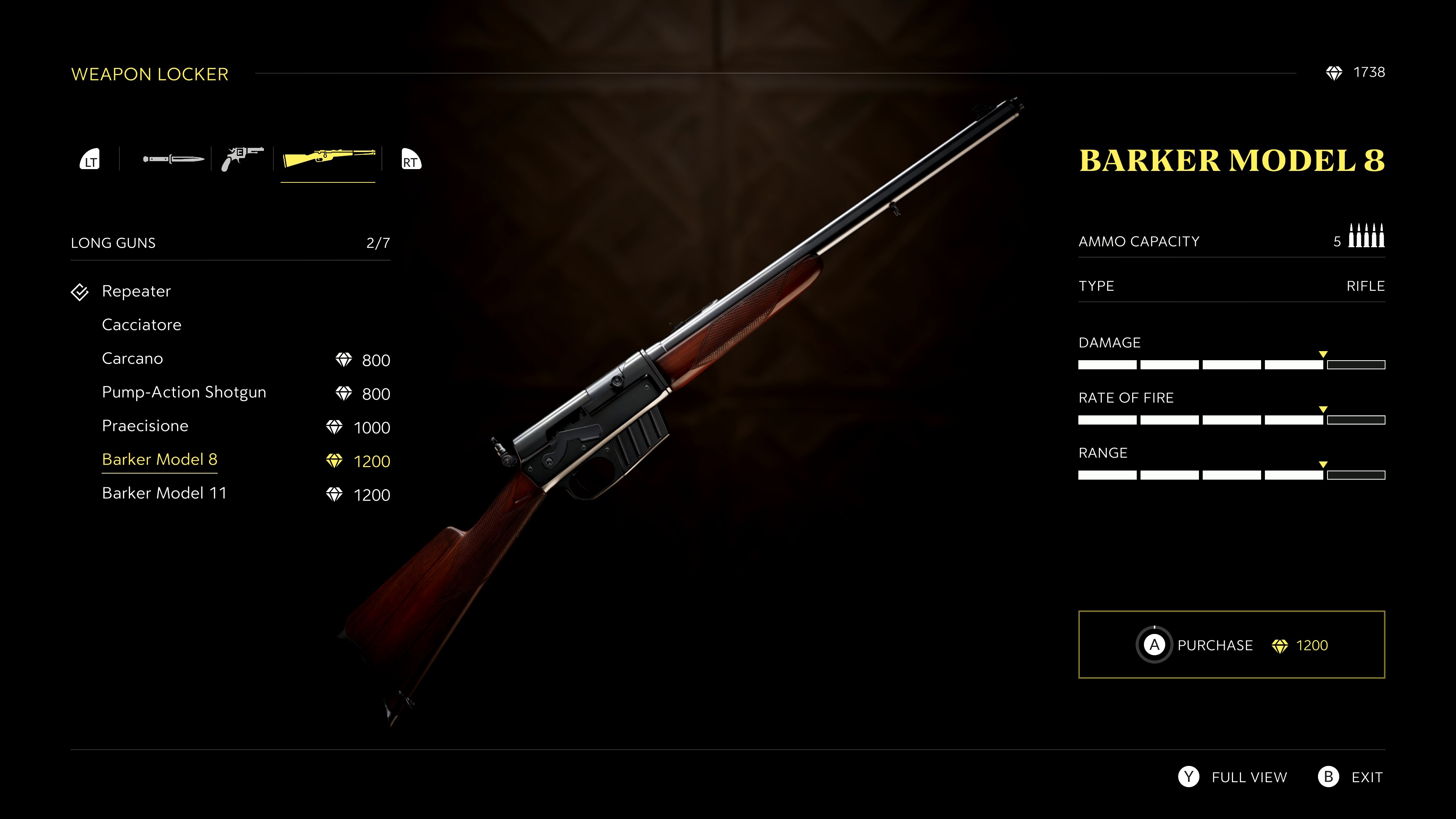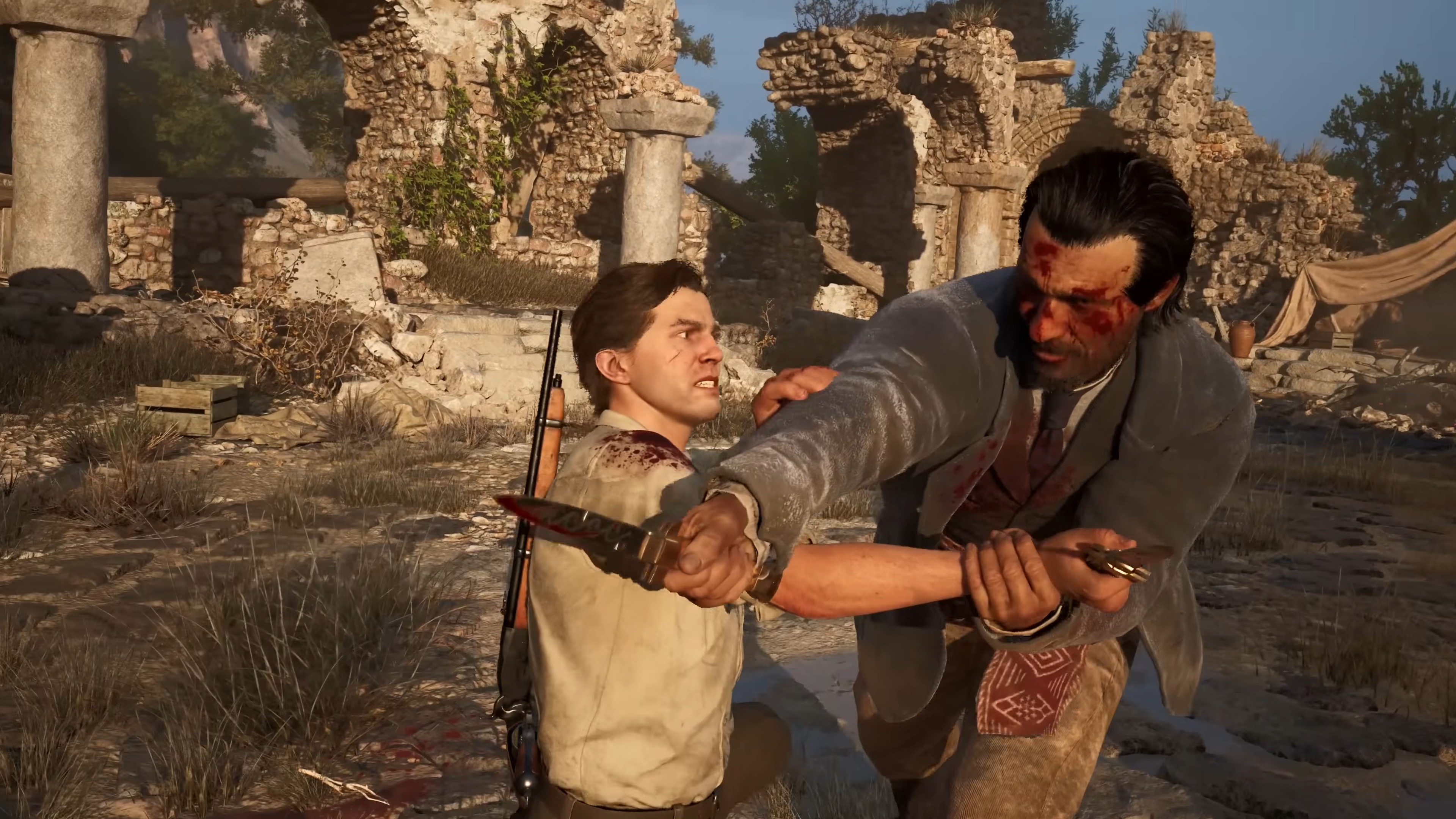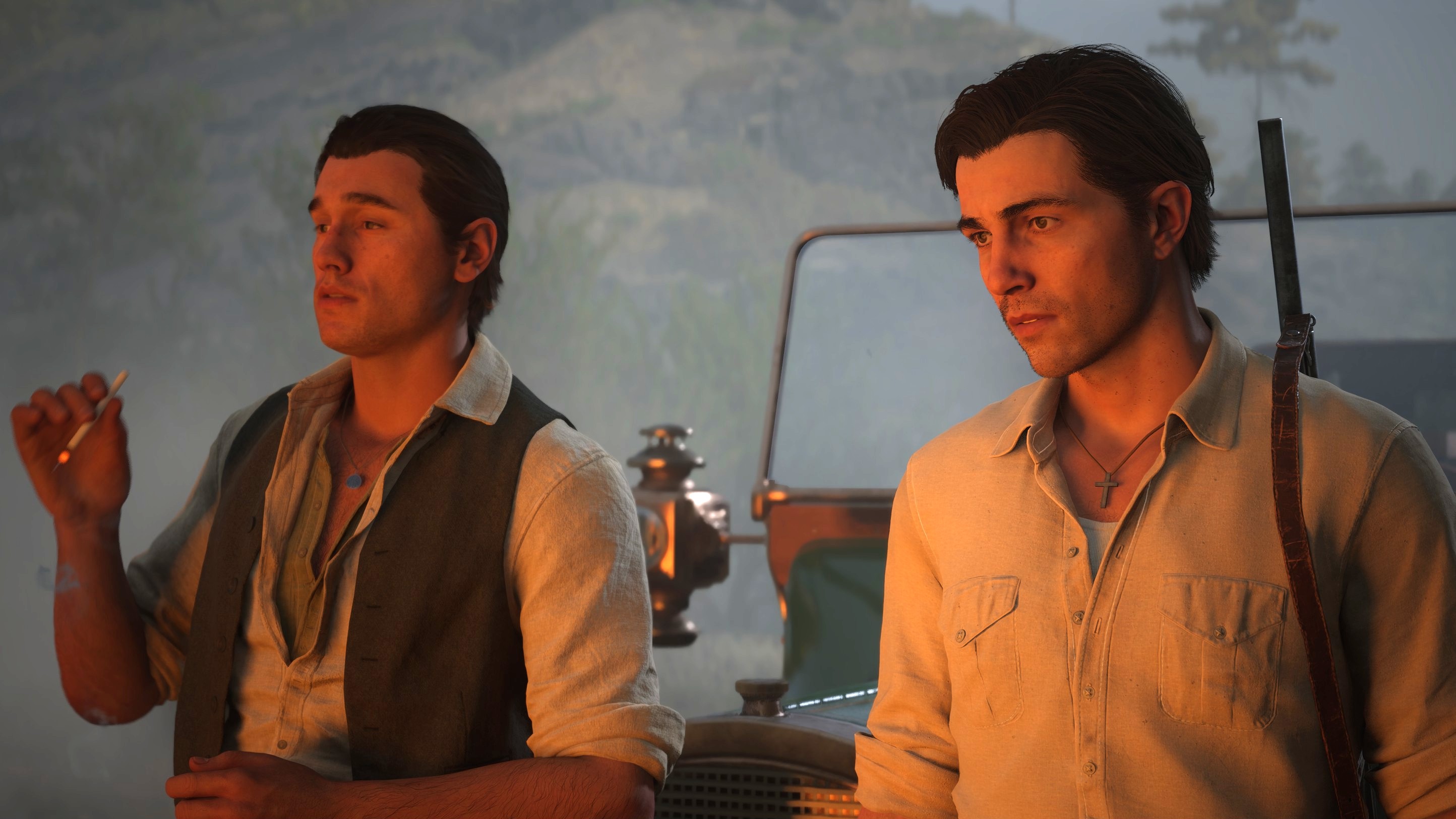Our Verdict
A decent but cliched mob story and bland, frustrating gameplay make this the weakest Mafia yet.
PC Gamer's got your back
The Mafia series has never had a clue what to do with its open world. In Mafia 1, the titular city of Lost Heaven was set dressing—never feeling like more than a sparse, bizarro version of its then-contemporary, GTA 3. In Mafia 2, avarice got the better of design, and all the side activities that would have rounded out the base game's home of Empire Bay were carved off to be flogged to you later as DLC, leaving the map as strangely empty as its predecessor's.
What is it? Local boy joins Sicilian mob in 1904. Things go as well as you'd expect.
Release date: August 7, 2025
Expect to pay: $50 / £45
Developer: Hangar 13
Publisher: 2K
Reviewed on: RTX 4080, AMD Ryzen 3700x, 32GB RAM
Multiplayer: No
Steam Deck: Unsupported
Link: Official site
Mafia 3 took an honest swing at things, trying to fill its home of New Bordeaux with stuff for you to do when a main quest wasn't holding your hand. It didn't work. The activities were one-note and tedious: an endless cycle of clearing out the same damn warehouse of the same damn goons before the game would let you get back to its rip-roarin' revenge story: the part you actually liked.
So if there's anything shocking about Mafia: The Old Country trading in the series' rambling, aimless maps for a strict focus on its main plot, it's only that it hadn't been done sooner. It's ostensibly the clear right move, cutting out the cruft to concentrate on the mob tales that have always been what people actually like about these games. By rights, it should be a winning formula. It is not. The Old Country's rote crime story can't bear the weight of keeping you interested even at a svelte 13-hour runtime (compared to the prior game's 40).
It makes me wonder. Is The Old Country's narrative just a misfire—an ill-timed dud in a line of bangers—or did those duff open worlds do more than we gave them credit for? Whatever your gripes with Mafia 3, I can't deny that I still fell in love with that game because, regardless of anything else, there's something to be said for screaming down the highway in a red corvette listening to Eve of Destruction on the radio, pausing only intermittently to hop out and brutalise racists. Take away that theme-park reconstruction of a particular era—of a cinematic vision of a particular era—and what are you left with? A shell of a story in a shell of a game.
Carusu-ing for a bruising
Mafia: The Old Country starts you out in the ratty miner's rags of Enzo Favara, a no-name Sicilian labourer who was more or less sold into slavery at five years old to pay off a portion of his father's debts. Which isn't a great start. An even worse start is what happens about 15 minutes after you hit new game: Mount-Etna-by-another-name gives a belch that collapses the mine on your head.
A dead best friend, a knife fight with your manager, and a horseback chase across the Sicilian countryside later and you find yourself at the mercy and in the employ of Don Torrisi, a local legitimate businessman who sounds like an Italian Con O'Neill and has the build of an American Bully XL.
Let's set up some hanging plot threads. Don Torrisi has a daughter, the beautiful and charming Isabella, who he intends to marry off to the son of a local baron. Gosh, she sure does seem to have a soft spot for Enzo, though. Working alongside Enzo is the Don's nephew, Cesare, a brash hothead with big ambitions who rankles when his uncle starts lavishing favour on the smart, temperate new guy. Overseeing Enzo and Cesare is Luca, a Torrisi lieutenant with a solid head on his shoulders, a loving relationship with his wife, and a new baby on the way.
Keep up to date with the most important stories and the best deals, as picked by the PC Gamer team.
Either I am supernaturally talented at figuring out where plots are going within 10 seconds of them beginning, or every single one of these threads—and The Old Country's story overall—unfolds in the most predictable way possible. If there's a surprise in how these arcs play out, it's only that there are no surprises, that things really do go how you immediately anticipate them going right from the very start.
If there's a surprise in how these arcs play out, it's only that there are no surprises
That's not to say it's awful. Sometimes cliches become cliches because they work, and even the routine stories The Old Country has to tell about its characters are buoyed by strong performances and decent dialogue, with the quiet menace of the game's two mutually hostile capi dei capi serving as particular standouts.
But there's only so much work good acting can do when it's serving a story you feel like you've seen a hundred times before. Mafia: The Old Country is a decent 'one of those mob stories,' but it's only ever 'one of those mob stories,' never veering into uncharted territory. Never taking the big, weird risks its immediate predecessor did.
It's an issue made all the more glaring by the times the story does happen to brush up against something more interesting. One of the game's earliest missions deploys you to break a strike at a local quarry, and the game's 'in the car on the way to the mission' chatter references your bosses' early days as union-busting muscle multiple times. And then, uh, that's it.
Not great! The game looks very pretty, but on my 4080-equipped machine on high settings I ran into frequent stutters and hitches throughout the entire game, ameliorated only a little by DLSS. Load times, too, were bizarrely long. I feared dying in combat not because of the occasionally ungenerous checkpoints but because it meant a loading scene that lasted far, far too long.
No story about the Sicilian mob's hand-in-glove relationship with Italian capital, no real delving into the economic or political side of organised crime. Even the spectre of anarchist terrorists, referenced repeatedly throughout the game, never becomes more than a convenient scapegoat to blame all your mob violence on. Instead of focusing on these deep and interesting narrative wells, The Old Country touches on them before aggressively yanking you back to focus on its characters and their inevitable endings.
Mambo Italiano
Mafia has never felt amazing in the hand. It's never been terrible, but no one's writing long love letters to the gunfeel of Vito's 1911 in Mafia 2, or the perfectly tuned driving of Mafia 3 (indeed, as someone who really does love that game, the racing side-missions were the closest I came to Alt-F4ing in disgust). Every entry is a game you love—if you love it—in spite of its flawed basics, not because it nails them.
Zeroing in on a tighter, smaller project doesn't seem to have done much to help this state of affairs. If anything, Mafia: The Old Country veers between bland, monotonous, and frustrating when it comes to the things it actually has you do. Every mission consists of one, some, or all of four modes: stealth, combat, driving/riding, and knife fights.
Stealth is by far the most preferable. Not because it scintillates, but because it's incredibly quick and easy. Your enemies are idiots, they can't see more than a foot in front of their face, and the opportunities to distract them, sending them galumphing off into a quiet corner to wait for death, are many.
The driving and horseriding are mostly fine, too. The bulk of the time, you're just traversing between objectives, and in what almost feels like an in-joke for series fans (Mafia 1 had a notoriously impossible racing mission early on), the game features two entire races (one horse, one car) that you have to win for the honour of your capo.
Neither are too hard—in fact, I suspect they're essentially rigged in your favour such that you always just pip first place right before the finish line, though I could be wrong—but they will give you trauma flashbacks if you're a long-time fan. Things get a tad more tiresome when you have to chase an enemy: the roads of early-1900s Sicily are tight and badly marked, and your crank-started cars don't exactly handle well, but even then the demands aren't too onerous.
Which leaves the two kinds of combat. At range, Mafia: The Old Country feels like a mid-budget Xbox 360 cover shooter yanked from its own era and transplanted, dazed, into our own. Your enemies are still idiots: they'll hop out from behind cover to march stony-faced towards your shotgun, and constantly bark out things like 'I'm reloading!' to let you know now would be a good time to shoot them in the head. At one point, I accidentally tossed a coin (a stealth-mode distraction) instead of a grenade, prompting an enemy to forget about our armed contretemps in order to jump up from behind his waist-high wall and check out what that noise was. I shot him.
But where things get mixed up is that it sometimes feels like the roles are switched—like your enemies all have auto-targeting and it's you, the player, who has been lumbered with forgiving stormtrooper aim to make their lives easier.
Playing on normal, which snaps you to enemies whenever you take aim on gamepad, I often found my reticule manifesting next to, not on top of, enemies, which combined with the ample spread on these turn-of-the-century guns meant I was constantly missing shots at what felt like point-blank range. Meanwhile, all these goddamn Sicilian Green Berets peppered me with absolutely perfect shots whenever I popped up from behind cover. At least healing is plentiful, not least because death means a too-long load and a sometimes ungenerous checkpoint.
And then there are the knife fights. These are a good idea. Sicily has a long history of angry young men going at each other with razor-sharp Liccasapuni, and if The Old Country had managed to keep itself in check with how often it throws them at you, they'd be a welcome and unique respite from the hum-drum stealth and dull shooting. It does not keep itself in check.
It's almost comical. If you're going up against a named character, you can guarantee that at some point they will come charging at you from off-screen during a cutscene and knock your gun from your hand, forcing you into a mano-a-mano knife fight based around parrying, dodging, and riposting. At one point, I was able to tell that a seemingly dead major antagonist wasn't truly dead because I hadn't had a knife fight with him yet.
The fights themselves are formulaic—parry, jab, parry, jab until your opponent is at half-health, at which point there will always (no, really, always) be a brief cutscene where they get the upper hand, then you parry, jab, parry, jab the rest of their health bar away. This would be cool if it happened twice, maybe three times. Instead, it crops up 11 times, the same pattern in every one.
Che brutta figura
I've always been a champion of games whose ambitions outpace their budgets or technical capacities. Even when a game kind of sucks, I've been known to fall in love with it if it has big ideas it goes for earnestly. I don't think any of the previous Mafia games kind of suck (though some would disagree with me), but I've slotted them into this category for years: charming, strange, and janky. They fall in the gutter, but at least they're looking at the stars.
But Mafia: The Old Country strips that ambition out to focus on the fundamentals, and then doesn't improve the fundamentals at all. It's a failed experiment and a bitter disappointment for me as a long-time fan of the series. But hey, I guess Sicily is at least pretty to look at.
A decent but cliched mob story and bland, frustrating gameplay make this the weakest Mafia yet.

One of Josh's first memories is of playing Quake 2 on the family computer when he was much too young to be doing that, and he's been irreparably game-brained ever since. His writing has been featured in Vice, Fanbyte, and the Financial Times. He'll play pretty much anything, and has written far too much on everything from visual novels to Assassin's Creed. His most profound loves are for CRPGs, immersive sims, and any game whose ambition outstrips its budget. He thinks you're all far too mean about Deus Ex: Invisible War.
You must confirm your public display name before commenting
Please logout and then login again, you will then be prompted to enter your display name.
